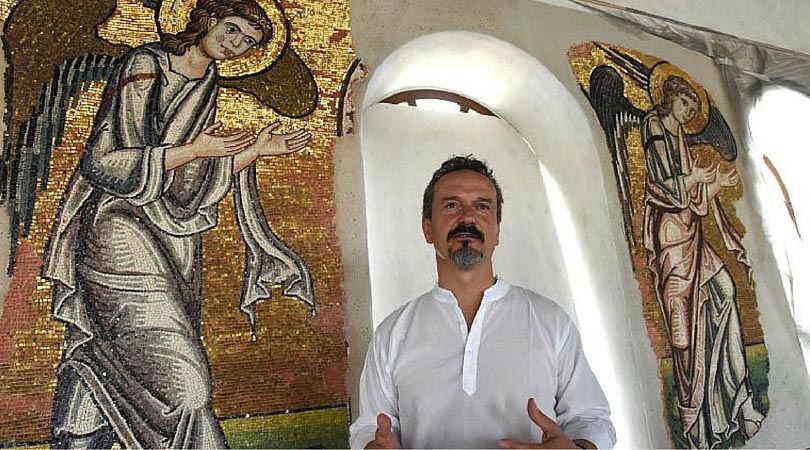An Italian team has completed restoration of Crusader-era mosaics in the Church of the Nativity, but the mosaics will only be unveiled publicly after work on lighting, electricity and the fire alarm system is also finished.
The work involved removing the layers of centuries-worth of soot and dirt — a result of the smoke of candles lit by pilgrims coming to venerate the site traditionally believed to be the birthplace of Jesus — from about 1.55 million tiny mosaic pieces that were reviewed and restored.
“I think all the Churches want to save this church because here Jesus was born,” said Giammarco Piacenti, CEO of Piacenti restoration centre, which began work on the church starting with the rotting wooden roof in April 2013. “It is important for all Christianity. For my professional life, this occasion is incredible.”
Only 1,400 square feet of mosaics remain from the original 21,528 square feet that adorned the wall, he noted. The others were destroyed by rain leaking through the roof, he said.
Made of stone, mother of pearl, and glass and gold leaf, the mosaics portray different scenes in the life of Jesus and the Church, including the disbelief of Thomas, the Assumption and Jesus’ entrance into Jerusalem on a donkey.
Piacenti said the mosaic of the disbelief of Thomas shows the date of 1155 and the names Ephraim and Basilius, presumably artisans who created the work. Some pieces of the mosaics remain missing and will not be replaced, he said, based on the theory of restoration that there should be a minimum of intervention on any piece.
“Really, it is only conservation,” he said.
One special moment came when restorers cleared away plaster from the wall bordering the roof in the main section of the church and discovered a seventh mosaic of a golden angel, in addition to the six they already knew existed. The angels’ arms gently direct pilgrims toward the grotto traditionally thought to be the site where Mary gave birth to Jesus.
During the Ottoman Empire, the angels’ faces were disfigured with gunshots to the nose and so here the missing pieces have been replaced, said Piacenti.
Both Islam and Judaism prohibit graven human images.
“They were shot in the nose to destroy, to kill them,” Piacenti said. “Restoration gave them “a second life.”
Read the complete article on thecatholicuniverse.com


